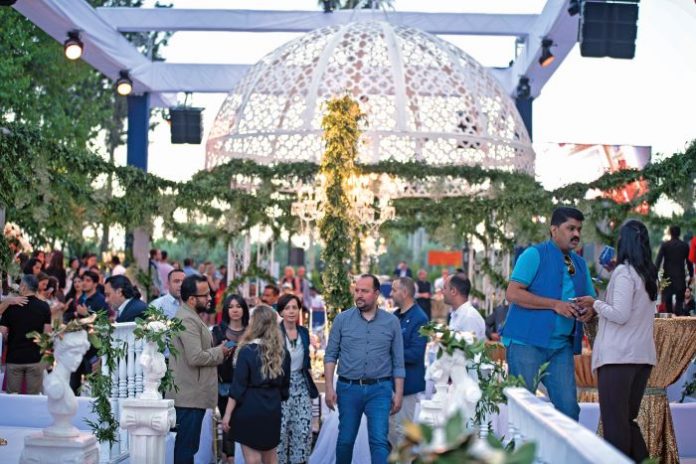The recently held Travel and Corporate M!CE Show provided an opportunity to delve into changing dynamics, understanding corporate budget allocations, and the importance of incentive travel and conventions in 2024.
MT Bureau
In the post-COVID era, the consensus is that travel remains crucial, with organisations balancing increased importance against the backdrop of cost and well-being considerations. The recent Travel and Corporate M!CE Show in Jaipur provided insights into the expectations and actions that corporate leaders are considering for accelerating incentive travel in 2024.
Highlighting the noticeable surge in travel budgets, Khadija Bagasrawala, Senior Manager, Travel & M!CE, Qure.ai, said, “Travel budgets have increased; people are travelling more. What we spent last year has almost doubled. We are also planning a few international trips, to support that, we have increased our budget.” This reflects a growing recognition within the industry of the essential role travelling plays in business operations and growth.
Contrasting this perspective, Sudha Prasad, Senior Manager, Compliance (Travel-Industry), Mphasis, said cost control is key. “From an IT perspective, we do not anticipate any IT company being interested in increasing their budget. Our focus is on cost control while ensuring that all requirements are met, end-to-end,” said Prasad. The IT sector, known for its meticulous budgeting, places a strong emphasis on achieving objectives within existing financial frameworks.
Prasad also sheds light on the significance of employee’s well-being during travel, particularly when they are away from their families. This concern is seamlessly integrated into their M!CE programme, demonstrating a comprehensive approach to corporate travel.
Annabel Christine Sam, AGM, Ashok Leyland, representing an organization involved in incentive programs provided a unique perspective on the changing nature of travel budgets. She noted, “For us, the budget has increased over 20 per cent. Keeping in mind that hotels are also raising their prices by a minimum of 20 per cent, the perspective has shifted from merely handling a M!CE movement to providing a life experience.”
The competitive market has prompted organizations to rethink their approach to travel and move beyond routine business transactions to offer an enriching experience. Christine emphasized an “experience-selling approach,” she said, “There is competition in the market. We are competing with each other to offer the best to our own people. Hence, it is an experience-selling approach, and we are willing to leverage the budget.”
Highlighting the prominence that travel has gained in organizations nowadays, Christine said, “Travel has become a crucial need of the hour. During COVID, people believed that there might be an increased reliance on online/video conferences instead of travelling. However, now the people want to come out, and catch up with what they had missed during that time.”
The perspectives shared by the industry experts underscore the varied opinions and focus of organisations toward their travel budgets. Although, the common thread is the acknowledgment of travel as an integral component of organisational growth and success. As the business landscape continues to evolve, these insights provide a glimpse into the adaptive strategies shaping corporate travel budgets.
The common thread is the acknowledgment of travel as an integral component of organisational growth and success















